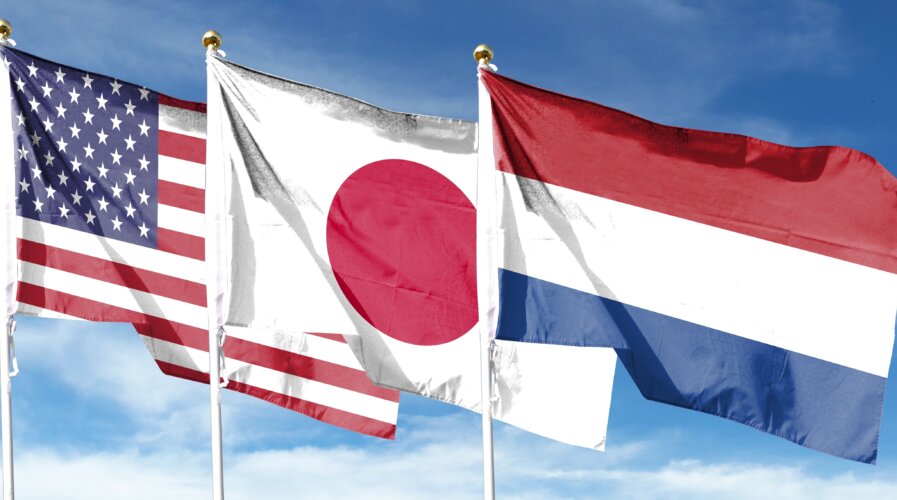
Netherlands bows to the US as it plans controls on chip gear exports to China.Source: Shutterstock
Netherlands bows to the US as it plans controls on chip gear exports to China
- The Dutch government is preparing restrictions on exporting specific types of chip-making machines to China amid pressure from the US.
- It marks the first concrete move by the Netherlands toward adopting rules urged by Washington to hobble China’s chip-making industry and slows its military advances.
Since 2022, the United States (US) has urged the Netherlands to restrict selling mainstream chip-making gear to China. Washington, after all, has been steadfast in expanding its campaign to curb China’s rise, and it requires help from its allies.
At the same time, China is not slowing down in its attempt to become a world leader in chip production, despite all of the US’ efforts to thwart those efforts. Then, in October 2022, the US introduced its most authoritarian export controls yet, designed to prevent China from obtaining advanced semiconductors or from making progress in its ability to manufacture them domestically.
As experts have put it, the export controls were a major diplomatic gamble. They would only effectively choke China if the US received support from allies that play a significant role in the global chip supply chain. Therefore, by January 2023, the US reached a deal with Japan and the Netherlands for a combined approach, but none of the countries had revealed any of the details agreed upon until this week.
The Dutch government announced on Wednesday the first public details of its approach: the intention to impose export restrictions on the “most advanced” semiconductor technology. So, the Hague is abiding by the US’ request to limit sales to China. The Netherlands’ trade minister, Liesje Schreinemacher, wrote to parliament outlining the new measures without specifying which chip-making machines were affected.
How will China be impacted by the Netherlands’ chip gear export control?
First and foremost, Dutch-based ASML is not only the largest European tech firm by market valuation but also the world’s only manufacturer of specific lithography systems, which are needed to print patterns of transistors on silicon wafers. That is why the Biden administration has been counting on the Netherlands to help stop China from further developing its chip industry and advancing its military capabilities.
ASML, since 2019, has not been able to ship its most advanced extreme ultraviolet, or EUV, lithography systems, which cost about 160 million euros (US$164 million) per unit, to China. The latest proposal would also bar machines one notch below that level.
“The new proposal would rein in exports of so-called immersion DUV lithography products, adding to restrictions that already exist for the most cutting-edge lithography machines, which are critical to producing the world’s most advanced chips,” according to Bloomberg, adding that the rules are expected to be published before the summer.
Schreinemacher, in her letter, said companies would have to apply for licenses to export this technology. She emphasized that the “surgical” measures would only include very high-specification systems that can make the smallest, most powerful chips, including some of the deep lithography (DUV) tools created by the Dutch company ASML.
In a separate statement, ASML responded, stating that the measures will “not have a material effect on our financial outlook” for 2023 or in the longer term. But the company confirmed that it would need to apply for export licenses to ship the most advanced DUV systems. “It is important to consider that the additional export controls do not pertain to all immersion lithography tools but only to what is called ‘most advanced,'” the company said.
ASML noted that it hasn’t been given guidance on the exact definition of “most advanced.” Since the new proposed export controls will require legislation, the implementation will take some time. Schreinemacher also plans to advocate for global controls in forums like the Wassenaar Group, a body of developed countries that restricts exports that can be used in military systems.
READ MORE
- 3 Steps to Successfully Automate Copilot for Microsoft 365 Implementation
- Trustworthy AI – the Promise of Enterprise-Friendly Generative Machine Learning with Dell and NVIDIA
- Strategies for Democratizing GenAI
- The criticality of endpoint management in cybersecurity and operations
- Ethical AI: The renewed importance of safeguarding data and customer privacy in Generative AI applications


